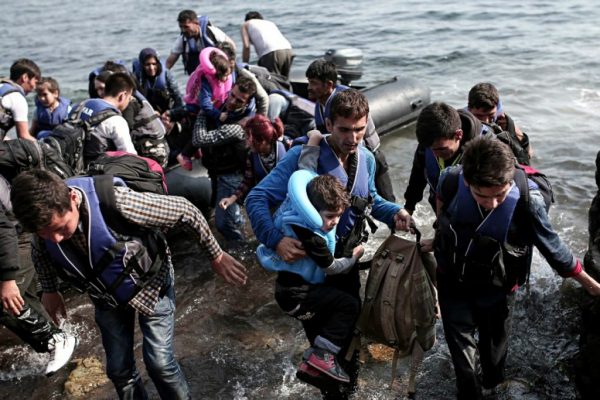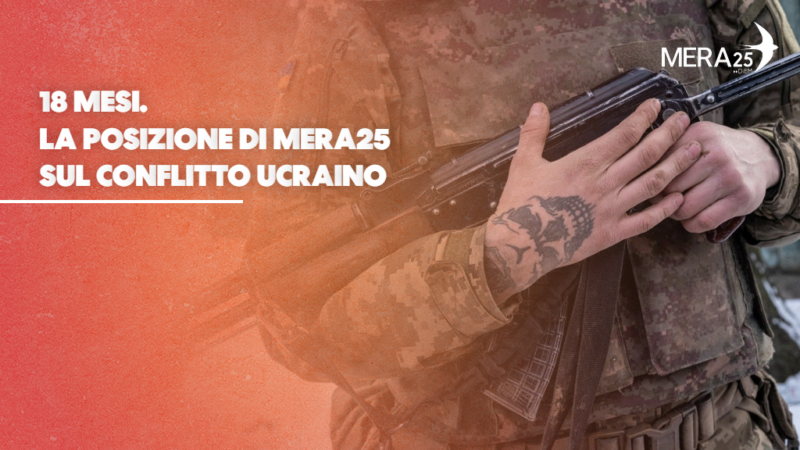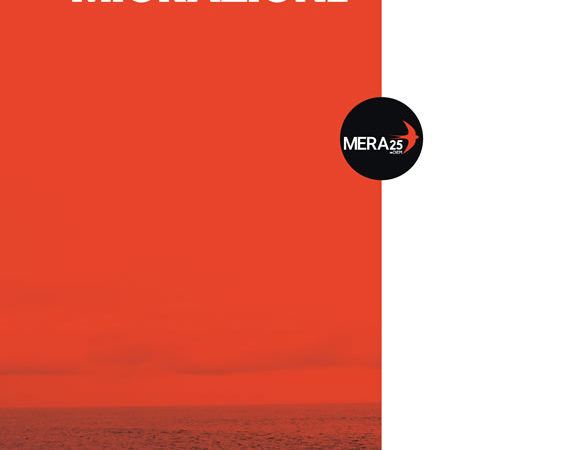People have lost their lives trying to get into Europe for decades. In June 2018 the migrant body count was 34,361 and rising.
Deaths have occurred at sea, in detention blocks, asylum units and even town centres. The EU has recently clamped down on sea patrols in the Mediterranean, which rescued about 45,000 refugees in the past. Italy earlier declared its waters closed to rescue boats and called on other countries to open their ports, but none came forward.
This is not a “refugee crisis” but a crisis of European values and ineptitude. Instead of formulating a solution based on solidarity and shared responsibility, Europe is pushing the issue of migration beyond its borders by paying Libya, for example, to intercept, detain, and torture migrants.
People have little choice but to flee war, persecution or abject poverty. And let’s not forget Europe’s role in creating these painful circumstances: destruction and war in Afghanistan, Syria, Iraq, etc. and economic and trade deals exacerbating poverty in Africa. Throwing money (humanitarian aid) at these countries, as the EU is doing, will have no long-term effect while these policies continue.
Instead, Europe must completely revamp what’s known as the Dublin System, which forces migrants to stay in the first EU country in which they were processed.
Dublin system
Due to their geographic location, Greece and Italy receive the majority of refugees. On arrival, they are registered and fingerprinted. But facilities are overfull, waitlists long and state benefits very limited. Many live on the streets and face sexual abuse, forced prostitution or domestic slavery in Italy. They’re compelled to seek asylum elsewhere.
But countries like the Netherlands stop asylum seekers’ procedures when their fingerprints are identified, invoking the Dublin regulation to deport them back to the country that registered them. Some refugees resort to burning their fingertips to avoid getting trapped in this nightmarish Catch 22. Those already trapped by a Dublin claim (“Dubliners”) obviously don’t wait to be deported; they “disappear”. In 2018 the Netherlands made 1150 Dublin claims to Italy – but only 180 people were actually returned. The Dublin claim expires after 18 months – and “Dubliners” hope to stay off the radar until then.
Dutch asylum centres don’t accept “Dubliners”, though some are being sheltered by individual households. Their hosts refrain from registering them with local authorities as required, due to the likelihood of deportation. This should serve to remind us of another time, decades ago, when many Amsterdammers defied authorities to hide victims of persecution in their homes.
The Dublin regulation places a disproportionate strain on coastal countries like Greece and Italy. In 2015 the EU tried to ease this burden by relocating 160,000 to other EU countries following quotas based on the country’s capacity. However, only 30% were actually relocated. The Netherlands promised in 2017 to take in 8712 refugees from Greek camps – but as of April 2019 only 1755 have been brought over. Thousands of asylum seekers remain stuck in places like Greece, waiting to be reunited with family members in Germany and elsewhere. Most countries took in less than their quota; others completely refused, notably the Visegrad group: Czechia, Hungary, Poland and Slovakia. Though the majority in the European Parliament is in favour of replacing the Dublin regulation by a centralised system of shared responsibility, the intransigence of these governments still stands in the way.
Life-threatening deportations
No common EU policy exists against life-threatening deportation. The Netherlands and Sweden reject most asylum seekers from Afghanistan, while France and Italy accept almost all, and don’t use the Dublin regulation to send them away. But only 35% of Afghan asylum seekers have been accepted in the Netherlands. The rest must in principle return to Afghanistan, one of the world’s most dangerous countries – and now more so than ever. In 2018 an estimated 26,500 people were killed there, including 3804 civilians and over 900 children. Since 2015, 160 Afghan asylum seekers have been forced onto planes back to Kabul from the Netherlands. Dozens are currently at risk of deportation. Hundreds more have gone “underground” or fled to another EU country.
By failing refugees Europe has failed itself
“We have all but abandoned mutual solidarity between member states, a core principle upon which this Union is built. Refugees and their lives have become the object of a political blame game, fuel for far-right populism and xenophobia,” says Cornelia Ernst, MEP.
It’s time we asked whether a culture can be called civilised that treats people as fair game for abuse because they come from poor war-torn countries.
We call on the EU to introduce a centralised asylum procedure without further ado, one that can be initiated at any point of arrival in the EU. Criteria for allocating host countries should include the asylum seeker’s preference as well as the country’s capacity. Member countries cannot continue to benefit from pooled EU resources without sharing responsibility in times of need. Those exceeding their refugee obligations deserve prioritised funding while those falling short should be penalised.
Let them in!
At DiEM25 we say: let them in. It is their fundamental human right — by which we also stand to gain: Europe is aging. We need migrants. We need refugees.
We call for a humane common asylum system, the closure of detention centres and the provision of adequate reception facilities and support in finding employment. We propose a European search and rescue operation to prevent migrant deaths at sea. The externalisation of EU borders to Libya and other countries must be terminated.
Sona Prakash is a member of the DiEM25 thematic DSC Peace and International Policy
Volete essere informati delle azioni di DiEM25? Registratevi qui!




